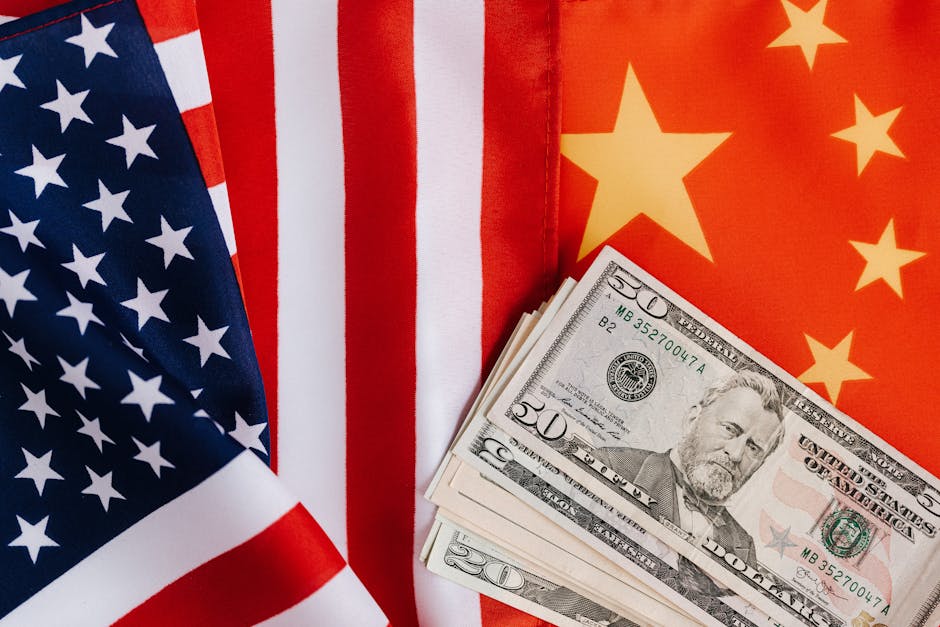China’s AI Governance Proposal Sparks Global Debate in 2025
BEIJING – China’s proposal for a new global body to govern artificial intelligence (AI) has ignited a fierce debate among world powers in 2025, raising complex questions about international cooperation, technological sovereignty, and the future of AI regulation. The proposal, unveiled at the annual World Economic Forum in Davos, calls for a United Nations-style organization to establish international norms and standards for AI development and deployment.
The Proposal’s Key Features
The Chinese proposal outlines a multi-faceted approach to global AI governance. It suggests creating a framework for ethical guidelines, focusing on issues like bias, transparency, and accountability in AI systems. The proposed body would also facilitate international collaboration on AI research and development, encouraging the sharing of best practices and technological advancements. A key element is the establishment of mechanisms for dispute resolution regarding AI-related incidents or conflicts between nations.
International Collaboration and Standards
The proposal emphasizes the need for harmonized international standards for AI, aiming to prevent a fragmented regulatory landscape that could hinder innovation and create trade barriers. China argues that a unified approach is essential to prevent the misuse of AI and to ensure its benefits are shared globally. However, the specifics of these standards, including enforcement mechanisms, remain largely undefined, sparking concerns about potential power imbalances.
Global Responses and Concerns
The proposal has been met with a mixed reaction from other nations. The United States, while acknowledging the need for international cooperation on AI safety, has expressed reservations about the structure and authority of the proposed global body. Concerns have been raised about China’s influence and the potential for the organization to become dominated by a single nation or bloc. The European Union, while advocating for responsible AI development, has voiced similar concerns about ensuring the equitable representation of all stakeholders.
Western Skepticism and Power Dynamics
Many Western nations express apprehension regarding China’s leading role in shaping the global AI governance framework. Concerns center on potential biases embedded within the regulatory structure and the impact on technological innovation within their respective countries. The opacity surrounding China’s AI development programs further fuels these anxieties. There are also worries about the potential for the organization to be used to stifle innovation or to impose restrictions that disadvantage Western AI companies.
The Implications for AI Development
The success of China’s proposal hinges on the willingness of other major powers to engage in meaningful collaboration. If adopted, the global AI governance body could reshape the landscape of AI development, fostering a more regulated and potentially safer environment. However, the potential for disagreements and power struggles among member states remains a major challenge. The lack of a clear enforcement mechanism also undermines the proposal’s overall effectiveness.
Technological Advancement and Innovation
The development of AI is proceeding at an unprecedented pace. The potential benefits of AI are undeniable, including advances in medicine, transportation, and manufacturing. However, there are also significant risks associated with uncontrolled AI development, including the potential for bias, discrimination, and job displacement. The proposed body aims to strike a balance between promoting innovation and mitigating these risks. However, the fine line between regulation and stifling innovation is a cause of ongoing debate.
The Future of AI Governance
The Chinese proposal marks a significant development in the ongoing effort to establish international norms for AI. Its success will depend on the willingness of countries to compromise and to find common ground. The creation of a truly global AI regulatory body is a complex and challenging undertaking, requiring compromise from all participants. The path ahead is likely to be fraught with negotiations and compromises.
Key Takeaways from 2025 Developments:
- China’s Leading Role: China’s proactive proposal underscores its ambition to shape the global AI landscape.
- International Division: Significant divisions exist among major powers regarding the structure and authority of the proposed body.
- Enforcement Challenges: The absence of a clear enforcement mechanism poses a significant obstacle to effective global AI regulation.
- Balancing Innovation and Safety: The central challenge is striking a balance between promoting AI innovation and mitigating associated risks.
- Uncertain Future: The ultimate success of the proposal remains uncertain and heavily reliant on international cooperation and agreement.
The debate surrounding China’s AI governance proposal will continue to unfold in 2025, shaping the trajectory of AI development and influencing the balance of power in the global technology arena. The coming months and years will be critical in determining the future of AI regulation and its potential impact on global society. The world watches intently as negotiations continue to shape the future of artificial intelligence. The long-term consequences of this proposal remain uncertain, with implications for technological innovation, economic competitiveness, and international relations.

